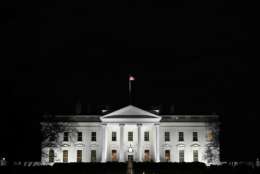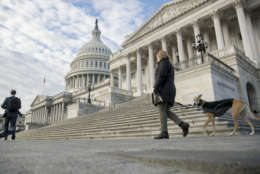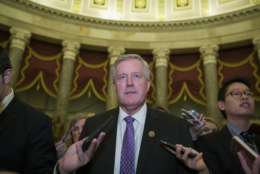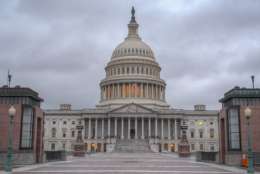Hubbard Radio Washington DC, LLC. All rights reserved. This website is not intended for users located within the European Economic Area.
furlough
-
As expected, employees at U.S. Citizenship and Immigration Services are beginning to receive furlough notices ahead of a possible Aug. 3 action. The Department of Homeland Security and the Office of Management and Budget have urged Congress in recent weeks to step in with emergency funding to avoid furloughs for some 13,400 employees.
June 29, 2020 -
In today's Federal Newscast, the Trump administration is reminding Congress of budget challenges at US Citizenship and Immigration Services.
June 26, 2020 -
A "dramatic decrease in revenue" during the coronavirus pandemic had initially forced U.S. Citizenship and Immigration Services to consider furloughs for a large portion of its workforce in July.
June 12, 2020 -
Workforce changes may be coming soon to two subcomponents at the Department of Homeland Security, including U.S. Citizenship and Immigration Services, where more than half of its employees could face furloughs without emergency supplemental funding from Congress.
May 29, 2020 -
If there’s a government shutdown next year, in late 2020, will air traffic controllers on paid parental leave actually get paid?
December 16, 2019 -
A year ago this week some long-service, long-suffering federal government workers were prepping for the slim possibility of a government shutdown over Christmas.
December 13, 2019 -
For the second year in a row more than a million feds aren’t sure if they’ll be forced to come to work or be locked with or without pay over the holidays.
December 09, 2019 -
If one of the next furloughs happens while a team of American astronauts are heading for the Moon, will they be forced to abort their mission and return to Earth?
November 12, 2019 -
The reason for the new shutdown decision deadline is that lawmakers have not approved appropriations to keep all federal agencies operating after Oct. 1.
October 01, 2019 -
Congress seems to be working hard to avoid a lapse in appropriations when the fiscal year ends in a couple of weeks. But anything can happen.
September 17, 2019 -
Despite tough talk from Congress and the White House, the federal employee benefits package has so-far remained untouched.
July 30, 2019 -
The new budget deal between Congress and the White House includes a two-year ban on sequestration-related furloughs for federal workers.
July 25, 2019 -
Employees at the Office of Personnel Management may face administrative furloughs if Congress doesn't advance the Trump administration's proposal to merge the agency with the General Services Administration, or if lawmakers can't pass permanent 2020 funding by the end of the fiscal year.
June 19, 2019 -
Imagine if you were four months late with your rent or mortgage payment. What if the largest employer in your community forced people to work without pay?
April 23, 2019
















